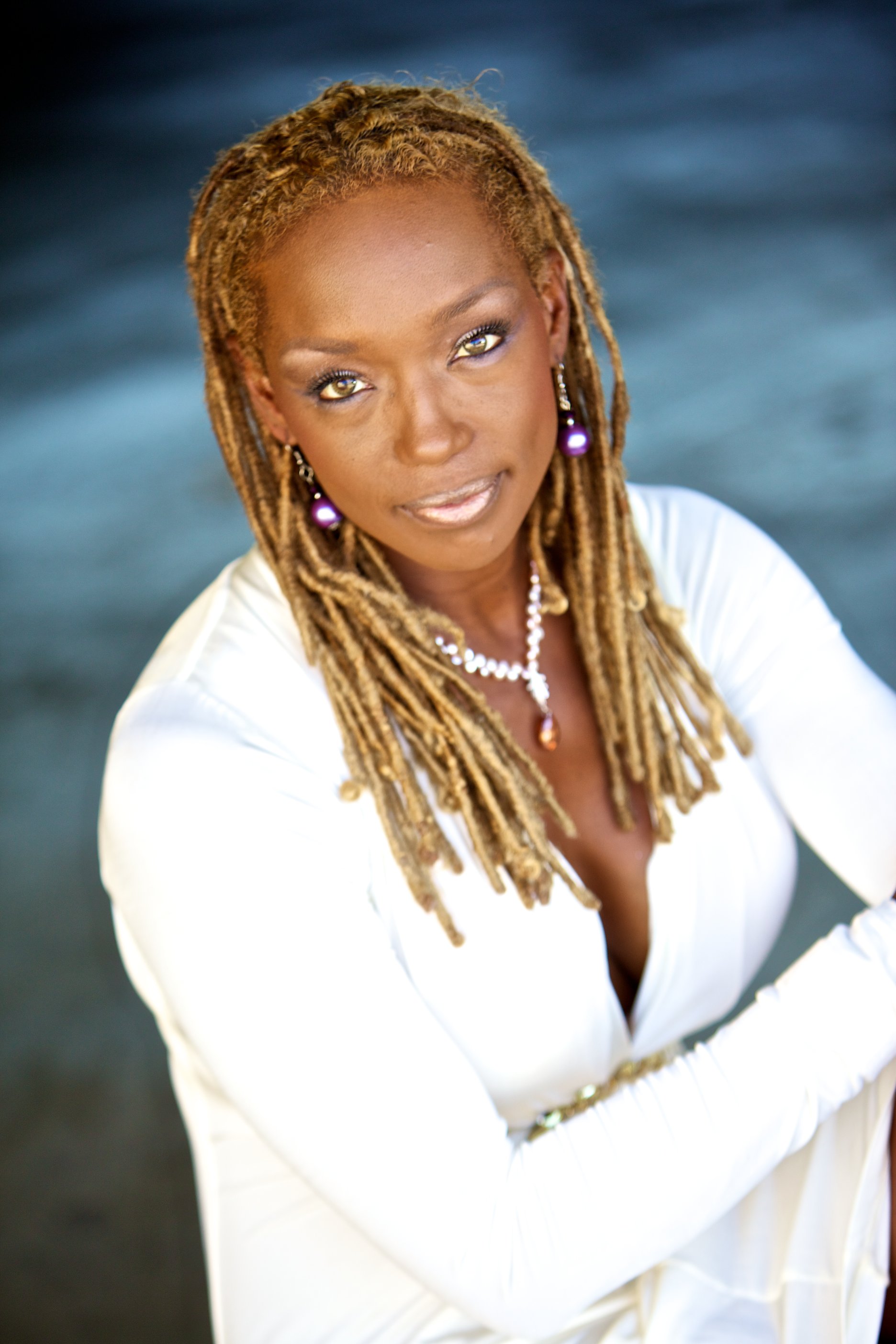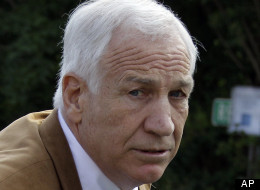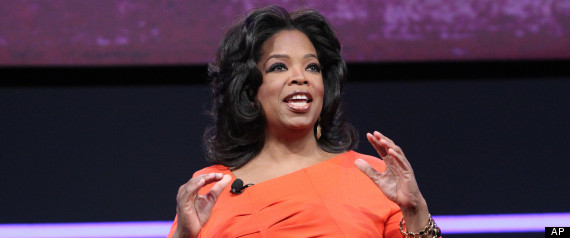
 For over the past two years, I have been an outspoken advocate in the fight against domestic violence. I am a very proud spokesperson for the National Domestic Violence Hotline, and I ofttimes speak of the physical and psychological harms domestic violence causes the victim. Only now am I publicly sharing my truths of being sexually abused, by a much older relative, when I was a child -- somewhere between the ages of 10 and 14 (I know that the abuse began at about the age of 10 because with eery clarity, I can remember my abuser telling me not to be embarrassed because my pubic hairs were beginning to grow).
For over the past two years, I have been an outspoken advocate in the fight against domestic violence. I am a very proud spokesperson for the National Domestic Violence Hotline, and I ofttimes speak of the physical and psychological harms domestic violence causes the victim. Only now am I publicly sharing my truths of being sexually abused, by a much older relative, when I was a child -- somewhere between the ages of 10 and 14 (I know that the abuse began at about the age of 10 because with eery clarity, I can remember my abuser telling me not to be embarrassed because my pubic hairs were beginning to grow).
My memory of sexual abuse was jarred and my anger festered as I offered on-air commentary during the trial of former Penn State University football coach Jerry Sandusky, wherein his heinous, deviant sexual behavior was detailed. The courage the eight victim-witnesses displayed in the testifying of the rape, molestation, and grandiose manipulation, propelled me to peel off another layer of self-pride as I work toward transparent living.
In my early 20's, I was empowered to tell my mother about being sexually abused. I also confronted my abuser and passionately explained what a piece of crap he was. I never told my father, because I truly believed that he would have hunted him down like the dog he is, and hurt him terribly.
When I put my foot down and explained that I would never come back to my family's home or any other event if he was present, my mother confronted him. He offered pathetic excuses that he "can't remember" and "you know it must have been kids playing." My mother, a woman of faith and leader in her church and community, threw him out of her home and told him that he was never welcomed again. Every time my abuser sees me and refuses to remove himself from my presence, I have vowed to "out" him immediately and publicly. I will never forgive him and he doesn't deserve forgiveness -- nor does Sandusky.*
 Being a victim of sexual abuse should not define who one is, but it definitely shapes who one becomes. As I look back over my childhood, I can clearly see how being violated so young, and so often, shaped me. In public, I was too serious for my age, yet, I loved to be a "clown" around family. I put a lot of pressure on myself to be a "good" child and not disappoint my parents even though they were lenient, fun and supportive. Being sexually abused screwed up my maturation schedule. My body had been treated like an adult and somehow, my mind responded.
Being a victim of sexual abuse should not define who one is, but it definitely shapes who one becomes. As I look back over my childhood, I can clearly see how being violated so young, and so often, shaped me. In public, I was too serious for my age, yet, I loved to be a "clown" around family. I put a lot of pressure on myself to be a "good" child and not disappoint my parents even though they were lenient, fun and supportive. Being sexually abused screwed up my maturation schedule. My body had been treated like an adult and somehow, my mind responded.
Many celebrities who have been victims of sexual abuse have found the courage to peer out from behind their veils of secrecy. Gaining fame doesn't expunge one's childhood trauma or minimize the work that must be done to recover from such abuse. Oprah Winfrey, Sugar Ray Reynold, Tyler Perry, Anne Heche, Queen Latifah, Gabriel Byrne, Tom Arnold, Rosie Perez, Fiona Apple, Tori Amos, Axl Rose, Wynonna Judd, Shania Twain, Marilyn Manson, Roseann Barr and Maya Angelou have come forward to share their stories, empower others and liberate themselves. It is my prayer that by speaking out about the abuse I endured, parents will watch and listen to their children closely and victims will be empowered to break free of the guilt and shame caused by their abuser. I hope that they will internalize the truth that they were the defenseless innocent party (victim) in the crime of sexual abuse.
Still, sharing the details of my past molestation is far less important than providing the following information that will help parents and caring adults, understand what sexual abuse is, how to prevent it, how to recognize it, and how to seek help.
"Child sexual abuse is any sexual act performed with a child by an adult or older child, with or without force or the threat of force. Child sexual abuse is most commonly committed by someone known to the child, including family members." It can continue for years. Adults with a power advantage of any kind over the child can commit child sexual. These abusers may be family friends, religious leaders, neighbors, baby sitters, youth group leaders or strangers.
Sexual abuse is still taboo is many communities, however it happens daily at alarming rates. Sexual abuse, like domestic violence does not discriminate. It happens in every socioeconomic community and within every race. It happens to children of all ages, including infants, every single day. Child sexual abuse has been reported up to 80,000 times a year, but this statistic does not accurately represent the number of sexually abused victims. Many cases go unreported because the child is afraid and/or too embarrassed to tell anyone. Even worse, an adult does not believe a child who has detailed his/her sexual abuse.
"In most states, the legal definition of child molestation is an act of a person--adult or child--who forces, coerces or threatens a child to have any form of sexual contact or to engage in any type of sexual activity at the perpetrator's direction." There are touching offenses, non-touching offenses and sexual exploitation offenses. These offenses are oftentimes coupled with direct and indirect threats. "Regardless of the sex of the survivor, researchers have found one of the most traumatic experiences is the act of being penetrated." According to the National Child Abuse and Neglect Data System (NCANDS) girls are more frequently the victims of sexual abuse, but the number of boys suffering from abuse is also significant and increasing.
Touching sexual offenses include:
Fondling;
Making a child touch an adult's sexual organs;
Penetrating a child's vagina or anus no matter how slight with a penis or any object that doesn't have a valid medical purpose.Non-touching sexual offenses include:
Engaging in indecent exposure or exhibitionism;
Exposing children to pornographic material;
Deliberately exposing a child to the act of sexual intercourse;
Masturbating in front of a child.Sexual exploitation can include:
Engaging a child or soliciting a child for the purposes of prostitution;
Using a child to film, photograph or model pornography.
Just like my experience and others with whom I have spoken, no child is psychologically prepared to cope with repeated sexual stimulation. "Even a two or three year old, who cannot know the sexual activity is wrong, will develop problems resulting from the inability to cope with the over-stimulation." I've always been an vivid dreamer and with clarity, I remember scary dreams that were repetitive and consistent in my youth. Very often, I was running and hiding from the big monster. Although, about 15 years ago, I freed myself from the unknowing control the abuser had on my psyche, I still had not fully come to grips with the long-term effects that being sexually abused had on my life and my relationships. A well-trained therapist helped chip away at walls that I didn't even know were up.
The sexual victimization of a child can be debilitating. The lingering effects of sexual abuse extend far beyond childhood. "Sexual abuse robs children of their childhood and creates a loss of trust, feelings of guilt and self-abusive behavior. It can lead to antisocial behavior, depression, identity confusion, loss of self-esteem and other serious emotional problems. It can also lead to difficulty with intimate relationships later in life." Statistics show that some sexually abused children become child abusers themselves. Others enter into prostitution and still more have other serious problems when they become adults.
Myth: Childhood sexual abuse is uncommon.
Fact: Before the age of eighteen, at least one in six girls and at least one in twenty boys are sexually abused.
Myth: Children are sexually abused by strangers.
Fact: Most children are sexually abused by someone they trust and know, such as a family member.
Myth: Most children seek help and tell adults about their sexual abuse.
Fact: Most children are threatened by the perpetrator to not tell so they do not. For those who do tell an adult, they are usually scolded or not believed.
Myth: Childhood sexual abuse only occurs in low socio-economic communities and communities of color.
Fact: Childhood sexual abuse occurs in all communities or socioeconomic status. The stereotypes about "hillbillies" engaging in incest is a classist stereotype. The only group of children that is twice as likely to be abused as other children are those with disabilities. Race, class, and economic status are not correlated with childhood sexual abuse.
Myth: Child molesters and pedophiles are easy to spot because they look creepy.
Fact: Child molesters and pedophiles do not have certain characteristics different from the general public. They come from all ethnicities, classes, and professional backgrounds.
Myth: Women do not sexually abuse children.
Fact: Although men make up the majority of child sexual abuse offenders, women also sexually abuse children.
Myth: All adult survivors of child sexual abuse experience many problems and are emotional messes. If they are not, then the abuse must not have been that bad.
Fact: Although adult survivors can be underachievers, struggled in school, and engaged in "bad" activities, others were also high achievers and "good" kids. Man differ in their coping mechanisms, leading them to be very different kinds of people.
Myth: All adult survivors of child sexual abuse should confront their perpetrators.
Fact: Confronting a perpetrator should be the survivor's choice. Some may wish to in order to receive closure, whereas others do not believe a confrontation would help them in their health, safety, and recovery.
Myth: A survivor of child sexual abuse needs to forgive their perpetrator to actually feel healed.
Fact: Survivors do not need to "forgive and forget" their perpetrator and the experience. Neither is essential for their healing process. Forcing a survivor to "forgive and forget" can excuse the perpetrator's actions and diminish their responsibility. Accountability is an essential piece of any forgiveness process.
Just like me, many children do not tell their parents or any adult when they are being sexually abused. Therefore, we must be mindful of the signs that should trigger you to ask questions of the child. Below are 10 common signs for which we must watch.
1. Unexplained injuries. Visible signs of physical abuse may include unexplained burns or bruises in the shape of objects. You may also hear unconvincing explanations of a child's injuries.
2. Changes in behavior. Abuse can lead to many changes in a child's behavior. Abused children often appear scared, anxious, depressed, withdrawn or more aggressive.
3. Returning to earlier behaviors. Abused children may display behaviors shown at earlier ages, such as thumb-sucking, bed-wetting, fear of the dark or strangers. For some children, even loss of acquired language or memory problems may be an issue.
4. Fear of going home. Abused children may express apprehension or anxiety about leaving school or about going places with the person who is abusing them.
5. Changes in eating. The stress, fear and anxiety caused by abuse can lead to changes in a child's eating behaviors, which may result in weight gain or weight loss.
6. Changes in sleeping. Abused children may have frequent nightmares or have difficulty falling asleep, and as a result may appear tired or fatigued.
7. Changes in school performance and attendance. Abused children may have difficulty concentrating in school or have excessive absences, sometimes due to adults trying to hide the children's injuries from authorities.
8. Lack of personal care or hygiene. Abused and neglected children may appear uncared for. They may present as consistently dirty and have severe body odor, or they may lack sufficient clothing for the weather.
9. Risk-taking behaviors. Young people who are being abused may engage in high-risk activities such as using drugs or alcohol or carrying a weapon.
10. Inappropriate sexual behaviors. Children who have been sexually abused may exhibit overly sexualized behavior or use explicit sexual language.
As a society, we must protect our children from sexual victimization. There are powerful people like Sandusky, who look and sound well-meaning and hold prestigious positions, and yet, they are actually pedophiles laying in wait to prey on our innocent children. We must protect our children by teaching them what appropriate sexual behavior is and when to say "no" if someone tries to touch touch them in any way that makes them feel uncomfortable. We cannot be absent in our children's lives. We must know who is caring for them at all times. We must watch and see how they act or react to certain people. Children need to know that they can speak openly to you and trust that they will be believed. We must reassure victims of sexual abuse that they are not responsible for what has happened to them.
Remember, you may be the only person in which a child, who is being sexually abused, confides. Report, report, report. No matter where you live you can contact the police, social services or human services in your community. Don't blow it. A child's life, sanity and future could be riding on your actions.
*To all of my commenters who will suggest how and why I must forgive my abuser, please respect my choice not to.